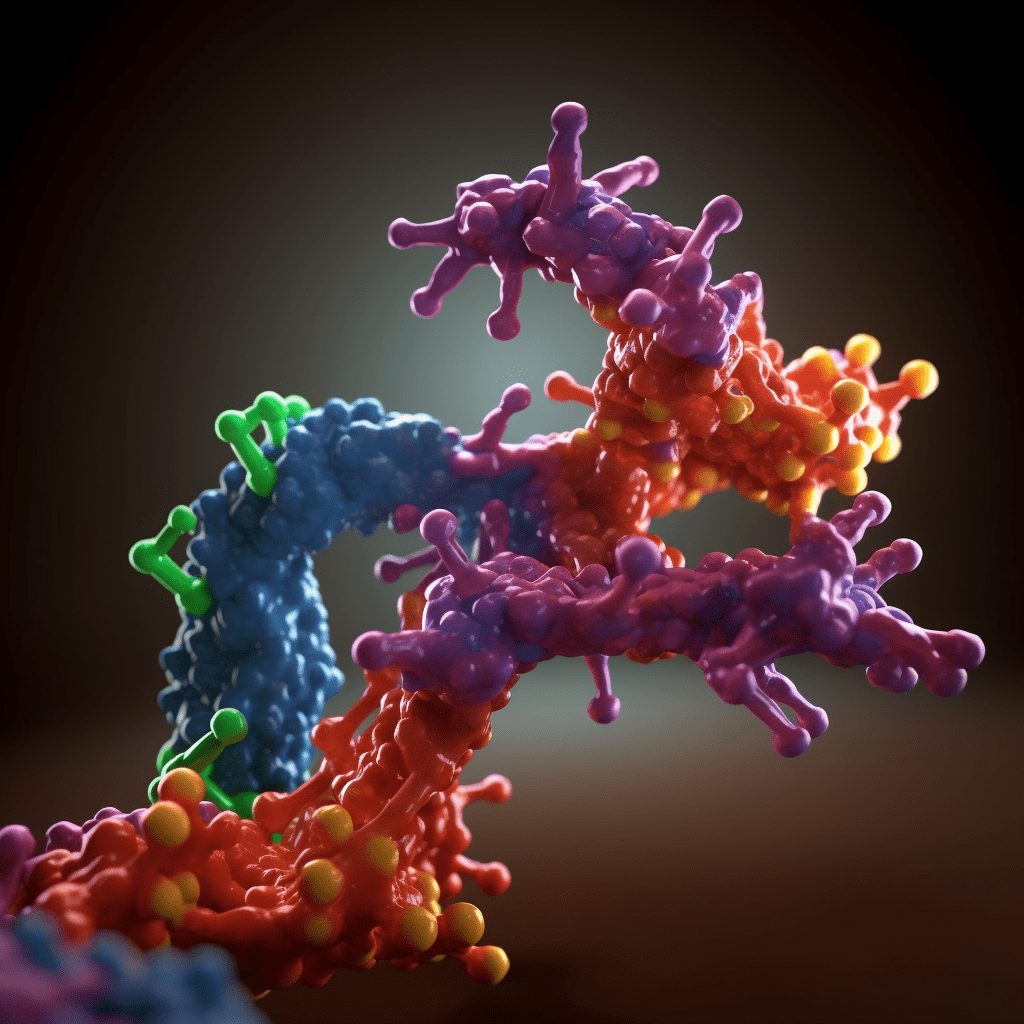Kinase Enzymes: Functions and Importance

In the intricate world of cellular processes, one group of enzymes stands out for its pivotal role in cell signaling and regulation – kinases. These remarkable molecules act as conductors, orchestrating a symphony of biological responses that govern growth, development, and adaptation. In this article, we delve into the fascinating world of kinase enzymes, unraveling their functions, importance, and impact on cellular communication.
Kinase Enzymes
At the heart of cellular regulation lies a diverse group of enzymes known as kinases. These enzymes catalyze the transfer of phosphate groups from ATP to specific target proteins, thereby triggering a cascade of events that ultimately govern cellular responses.
Structure and Mechanism
Kinases are characterized by a conserved catalytic domain that facilitates their enzymatic activity. This domain accommodates ATP and the target protein, enabling the transfer of phosphate. This process, called phosphorylation, acts as a molecular switch, turning proteins on or off in response to various stimuli.
Classification of Kinases
Kinases exhibit remarkable diversity, and they are classified into different families based on their substrate specificity and sequence homology. The human genome encodes hundreds of kinases, each playing a distinct role in cellular processes.
Role in Cell Signaling
Cell signaling relies heavily on kinase-mediated phosphorylation events. These events form intricate signaling networks that transmit information from the cell surface to the nucleus, influencing gene expression, metabolism, and other critical functions.
Kinases and Disease
Dysregulation of kinase activity is often linked to various diseases, including cancer, neurodegenerative disorders, and immune-related conditions. Understanding kinase-related aberrations provides insights into disease mechanisms and potential therapeutic targets.
Importance in Drug Development
Kinases have emerged as promising drug targets. Kinase inhibitors, designed to modulate aberrant kinase activity, have revolutionized the field of targeted therapy, offering new avenues for treating challenging diseases.
Regulation of Kinase Activity
Kinase activity is tightly regulated to maintain cellular homeostasis. Regulatory mechanisms, such as feedback loops and allosteric regulation, ensure that kinase signaling remains balanced and responsive.
Intracellular Crosstalk
Kinases are integral to intracellular communication. They participate in intricate crosstalk between different signaling pathways, allowing cells to integrate and respond to diverse environmental cues.
Emerging Research in Kinase Biology
Ongoing research continues to unveil novel aspects of kinase biology. From uncovering new kinase substrates to elucidating their roles in complex cellular processes, this field remains ripe with discovery.
Kinases in Cancer Biology
Aberrant kinase signaling is a hallmark of cancer. Understanding how kinases drive oncogenesis has paved the way for targeted therapies that specifically inhibit the signaling pathways fueling tumor growth.
Kinases and Neurological Disorders
Kinases play critical roles in the nervous system, influencing neuronal development, plasticity, and survival. Dysfunction of kinase pathways has been implicated in neurodegenerative diseases and psychiatric disorders.
Kinase Inhibitors: Potential and Challenges
While kinase inhibitors show immense therapeutic potential, their development is not without challenges. Drug resistance, off-target effects, and selectivity issues pose hurdles in translating kinase-targeted therapies to the clinic.
Future Prospects and Advancements
As technology advances, so does our understanding of kinases. From the discovery of new kinases to the design of innovative therapeutic strategies, the future holds exciting possibilities for this field.
Ethical Considerations in Kinase Research
With great scientific power comes ethical responsibility. The manipulation of kinase pathways raises ethical questions about unintended consequences and the potential for misuse.
Key Takeaways
In the grand tapestry of cellular communication, kinases are the master weavers, crafting intricate patterns of signaling that dictate cellular fate. Their diverse functions and roles in health and disease underscore their significance in biology and medicine.
FAQs
1. What are kinases, and what is their role in cells? Kinases are enzymes that facilitate the transfer of phosphate groups, playing a crucial role in cell signaling and regulation.
2. How do kinases contribute to diseases like cancer and neurological disorders? Aberrant kinase activity can contribute to the development of diseases like cancer and neurological disorders by disrupting normal cellular processes.
3. What are kinase inhibitors, and how do they work? Kinase inhibitors are molecules designed to block the activity of specific kinases, offering targeted treatment options for diseases.
4. What does the future hold for kinase research and its applications? Advancements in technology and research techniques are expected to uncover new insights into kinase biology and potential therapeutic avenues.
5. What ethical considerations are associated with manipulating kinase pathways? The manipulation of kinase pathways raises ethical concerns about unintended consequences and the responsible use of scientific knowledge.

Navigating the Complex World of Global Regulatory Affairs in Oncology
In today's fast-paced global pharmaceutical landscape, the regulatory affairs sector plays a pivotal role in ensuring the safety, efficacy, and market access of oncology drugs. As the demand for innovative cancer therapies continues to grow, understanding the intricacies of global...
11 months agoNavigating the Complex World of Global Regulatory Affairs in Oncology
In today's fast-paced global pharmaceutical landscape, the regulatory affairs sector plays a pivotal role in ensuring the safety, efficacy, and market access of oncology drugs. As the demand for innovative cancer therapies continues to grow, understanding the intricacies of global...
11 months ago
Overcoming the Hurdles: Navigating the Challenges in Oncology Clinical Trials
In the world of medical research, oncology clinical trials are at the forefront of innovation and discovery. These trials play a crucial role in advancing our understanding of cancer and developing more effective treatments. However, the path to successful oncology...
11 months agoOvercoming the Hurdles: Navigating the Challenges in Oncology Clinical Trials
In the world of medical research, oncology clinical trials are at the forefront of innovation and discovery. These trials play a crucial role in advancing our understanding of cancer and developing more effective treatments. However, the path to successful oncology...
11 months ago
Embracing a Patient-Centric Approach in Oncology Trials
In the realm of healthcare and medical research, the term "patient-centric" has gained significant traction in recent years. This shift in focus towards prioritizing patients' needs and preferences is not only transforming the healthcare industry but is also making waves...
11 months agoEmbracing a Patient-Centric Approach in Oncology Trials
In the realm of healthcare and medical research, the term "patient-centric" has gained significant traction in recent years. This shift in focus towards prioritizing patients' needs and preferences is not only transforming the healthcare industry but is also making waves...
11 months ago